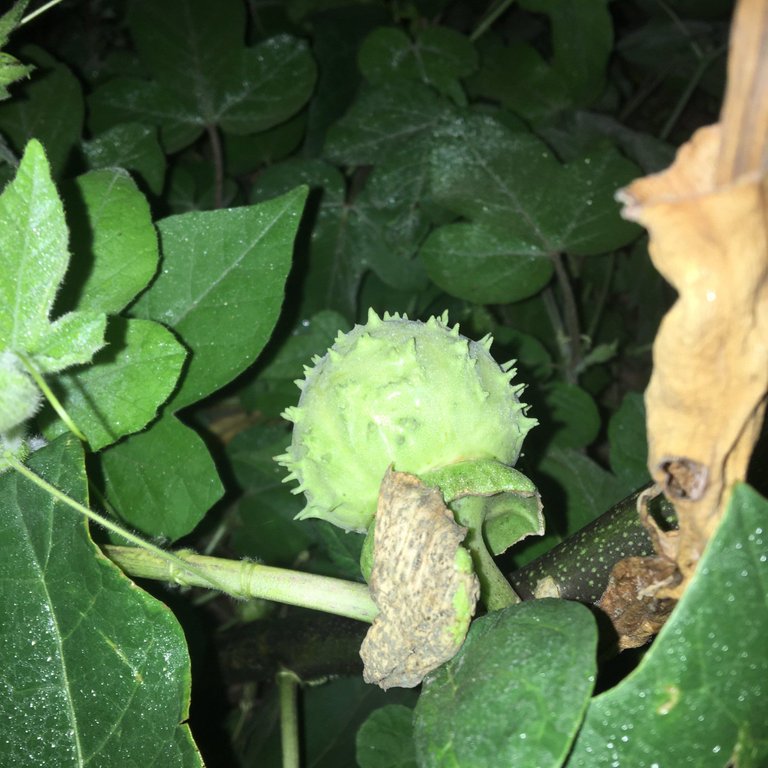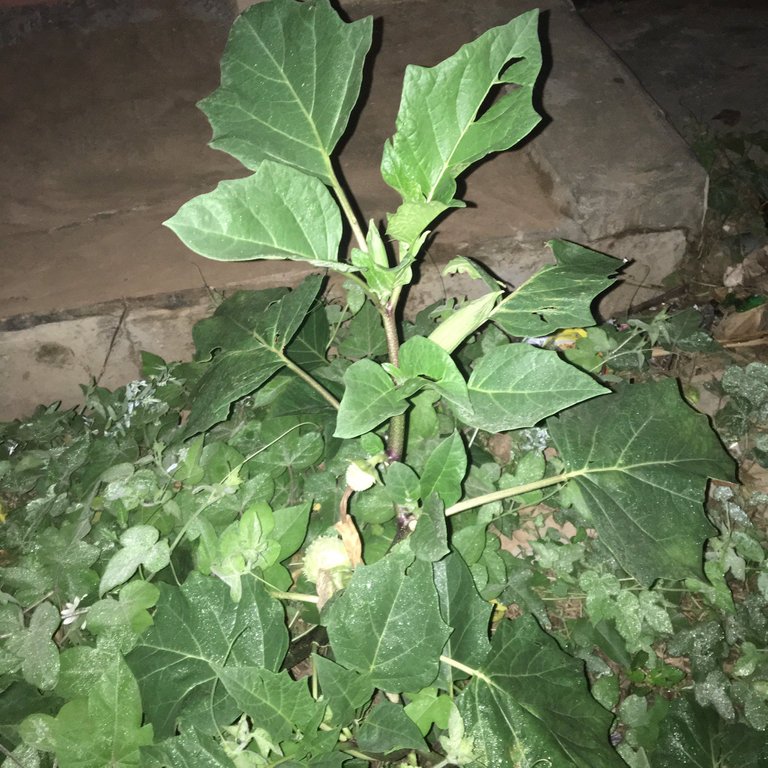Perhaps it is just me but some of the time, I wonder what the rationale behind the government's banning of some substances which are termed 'dangerous' could be when there are substances that seem far more dangerous than them that are either not banned or cannot be banned. These substances are probably not banned or cannot be banned simply because they exist or grow naturally all around and the knowledge of their dangerous characteristics is known to a few persons.
Drugs like Rohypnol and its derivatives are banned for common usage because of their abilities to sedate to the extent of erasing memories (often used for date rapes), cocaine and heroin are illegal because of the tendency to get easily addicted by users, and Cannabis remains banned in many places because of its supposed negative effects on the brain despite its proven medical benefits.
A few days ago, I was just taking a stroll around my hood when the fruit of a particular plant caught my attention. Upon moving closer, it struck my memory right away and the events of how I got to know about the plant started playing in my head. The image of the plant is below:


It was one of those days during my undergraduate days where one of my roommates in the hostel decided to throw a party to celebrate his birthday. Being young, wild, and adventurous, my roommates all planned to have a master of all birthday celebrations.
They decided to make the party drink as intoxicating as possible because they know that when intoxicants get into the bloodstream, the party becomes lit. Hence, they made a drink by mixing different brands of alcoholic drinks together in a big bowl. A few hours before the party will kick off, the fruits of the plant above were brought in, cut into small pieces, and soaked in water.
The mixture was filtered and the filtrate was added to the already prepared drink in a bowl. More than enough of the drink was made available for the attendees. Being a teetotaler myself, I totally stayed away from the drink. The drama that ensued mid-way into the party is indescribable.
The following morning, some of the participants were found sleeping in the hostel's toilets, some in the stores while the celebrant himself was nowhere to be found. It was simply chaos and instead of the normal hangover that usually follows a night of boozing up, most of the participants simply could not recollect what went down at the party.
To cut the long story short, the participant was found about 220 kilometers away from the school premises, far away in another state. Thank goodness for the school identity card that was found on him. He was returned to school and he ended up at the university's health center. Till today, neither the celebrant himself nor any of the attendees can recollect what actually transpired or how he got to the location where he was found.
The plant above whose infusion extract was added to the prepared drink is locally known as 'gegemu'. It is, however, scientifically known as Datura metel and is popular among the youths due to its psychoactive and hallucinogenic properties. In actual fact, there is a popular saying among the Nigerian youths that he who toys with D. metel toys with death.
D. metel grows as a shrub ad belongs to the solanaceae angiosperm family. There are several other species within the genus but most of them are not as popular as D. metel.
The psychoactive and hallucinogenic properties of the plant are not limited to its fruits alone. Every organ of the plant has the metabolite, although in varying proportions. Despite the danger inherent in its usage, there is no law banning or limiting its usage in the country. Of course, the plant has some other ethnobotanical and medicinal properties such as antifungus, antibacterial as well as nutritional benefits. Although the latter property is marred by the plant's cytotoxicity.
There are several plants that grow naturally around us that are as deadly or even deadlier than D metel without adequate effort by the government to identify and limit their usage as much as possible. Despite the obvious medicinal and other benefits of substances like cocaine, cannabis, heroin; they have been heavily banned in several countries, Nigeria inclusive. This makes to wonder, why would you ban small evils and allow the bigger evils to thrive unlimitedly?
Thank you all for reading.
I know this plant well. LOL
I researched psychoactive plants for several years and made use of many, but I never took chances with medium or high doses of Datura, it is a very dangerous intoxicating plant, exactly for doing things with what you reported in your post! It is good to instruct, I got tired of seeing people wanting to "get high" asking how to prepare Datura tea! Unfortunately it is not possible to control something like this, because it is everywhere and in fact it is not something that is used in large quantities, even because the effect is repellent, you will not want to repeat it if you have a little awareness. But in general, Drug law rarely works, it is a sadness to see cannabis banned in the middle of 2021 for example.
Glad to have someone that has researched the plant in the comment section. I can only imagine how deadly the plant is, never contemplated taking it. The closest I have been to it was when I took the image above.
This plant is no joke. It is a plant to be super careful with. Where I grew up in Virginia, a species of Datura also grows they call 'Jimsonweed' or "Moonflower" and people have died, mostly teenagers, from eating the seeds. Of course, it is very medicinal, and with the right amount, could be very healing. But, there are fewer expert herbalists these days that know what to do with it. Some people make 'flower essences' with the flowers, soaking them in water for half a day, and then removing the flower and bottling the water in some brandy, and taking only drops at a time. thanks for sharing.
Thanks for such an insightful addition. There is no doubt that the plant is a dangerous, yet widely available one. I think something should be done to document some of these deadly plant and call the attention of the public to them.
The author Dale Pendell wrote the Pharmako books, three of them, documenting poison plants of different types worldwide. I’m pretty sure it’s published in many languages. It is a really amazing set of books. He died a could years ago unfortunately.
As you rightly said there are many plants around us that are quite dangerous than cocaine, but I think attention has not been given to them because they are usually considered as valueless by populace. Except those that grows up in rural areas, herbalist and few scientist (such as botanist and pharmacologist),most people do not even know the medicinal benefit of plants that they see on daily basis talk-less of knowing how dangerous they could be.
Learning about the plant for the very first time.
Thanks for your contribution to the STEMsocial community. Feel free to join us on discord to get to know the rest of us!
Please consider supporting our funding proposal, approving our witness (@stem.witness) or delegating to the @stemsocial account (for some ROI).
Please consider using the STEMsocial app app and including @stemsocial as a beneficiary to get a stronger support.